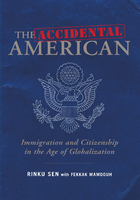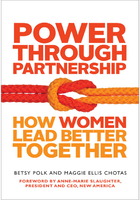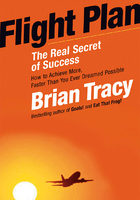Unite the Divided, Divide the United
Have you heard of General Nathan Bedford Forrest
For five years he fought the Yankees hand to hand
But after Appomattox he got lonesome
So he went and organized the Ku Klux Klan
His ex-soldiers crossed the Mississippi River
And founded Forrest City, Arkansas
I never got to meet old General Forrest
But then he never met my old friend, Mervin Barr
All along the bars and grills of Forrest City
Talking to the people where they are
"I think it's time for us to get together
There's no need to be afraid," says Mervin Barr
Shooting pool to supplement the pension
From injuries he got in the Marines
When he talked, you couldn't help but listen
He was the gentlest man I've ever seen
Some days he was too sick to leave the Southside
Where he lived with his Momma
In a little old shotgun shack
So they'd take him to the VA home in Memphis
Where the sheets were white,
But Mervin's face was black
But he knew that he was needed by his people
And he marched them up and down that Delta town
The doctors tried to send him back to Memphis
But he wouldn't leave until the fight was won
They say that on the day that he was buried
Five hundred people stood beside his grave
I don't like funerals, but I kind of wish I'd been there
Though I couldn't say just why I feel that way
The nightriders' shotguns didn't kill him
Nor the people who had sworn they'd do him in
He died because he wouldn't go to Memphis
And I don't expect to see his like again
I learned a lot the summer I turned twenty-one.
I learned to eat catfish, grits, collard greens, country ham with red eye gravy, and streak o'lean sandwiches.
I learned there's such a thing as community organizing, and that, with good teachers, just about anyone can learn to do it creatively.
I learned that everyday people have a great capacity for building unity across the lines that so often divide them, especially when they have an organizer helping them learn how.
I learned that the institutions and people that hold power over others are rarely as united as they first appear.
I learned that, with a little creativity, an experienced organizer can help people work to widen the cracks that separate powerful people and institutions from each other, and win victories that change their own lives for the better.
I learned the meaning of courage.
I had missed the famous Mississippi Summer of 1964, when thousands of volunteers went to that state to help its African American residents become citizens in the full sense of the word: people who could register to vote, go to the polls on election day, and mark a paper ballot for the candidates of their choice. I wanted to go South for what everyone knew would be an important moment in history, but my parents quite literally feared for my life and refused to let me go.
At the time, I thought my folks were paranoid, arbitrary, and unreasonable. Today, almost fifty years later—now that Elizabeth Minnich and I have raised three children—I'm willing to admit they had a point.
Here's what led to Mississippi Summer. During the Reconstruction years that followed the end of the Civil War, with male former slaves now having the right to vote, more than fifteen hundred African Americans were elected to public office in the states of the former Confederacy. Under their leadership, most states in the South for the first time established public schools and passed some of the most progressive legislation in the country at that time. Black and white teachers traveled from the North to help the ex-slaves learn to read and write. Mississippi and South Carolina elected the first Black members of Congress in this country's history.
For most white southerners, this only added insult to injury. When in 1877, President Rutherford B. Hayes withdrew the federal troops that had occupied the South since the end of the Civil War, these white southerners struck back with full force. The states that had been part of the Confederacy began systematically, violently, to deny Black people the right to vote and, along with that, virtually anything else that might be considered a right. African Americans who even attempted to register to vote were harassed, intimidated, beaten, run out of town, shot, lynched.
"White supremacy," as that system proudly called itself, meant exactly that. Within a few years, throughout the South, virtually every elected and appointed official was again white: sheriffs, police chiefs, county commissioners, mayors, city council members, judges, district attorneys, jailers, school superintendents, principals, county agricultural agents, welfare department heads. So were almost all the people who held economic power: plantation owners, factory operators, landlords, large farmers, bankers, to name just a few.
The white South, as it turned out, hadn't really lost the Civil War (which in many parts of the South is still called the War Between the States and, in Charleston, South Carolina, so help me, "The War of Northern Aggression"). It had simply been defeated in some battles between 1861 and 1865, suffered through a relatively brief period of federal military occupation and Black political power, and then, as its leaders had always promised, had risen again.
For white people to stay on top required keeping Black people on the bottom. Here the vote was key. The Reconstruction experience had shown the potential for Black political mobilization, especially in South Carolina and Mississippi, the two states with African American majorities. Elections in which Blacks participated freely could, at least in those areas, do severe damage to white supremacy as a political if not an economic system. No fools, the South's white leaders did their level best to make sure that would never happen.
Then, after more than a century of organizing by African Americans all over the United States, supported by allies of other races and ethnicities, Congress passed the Voting Rights Act of 1965. It was a promise to Black people in the South that they could finally register and vote without fear of intimidation, retaliation, violence, death.
The summer volunteers went to Mississippi in 1964, even before the Voting Rights Act was passed, to work to make that promise real. I followed them in the newspapers and on our black-and-white TV, wishing I were there. I swore as soon as I turned twenty-one, I would follow in their footsteps.
To my amazement then and now, I actually did. I was lucky enough to have a car that was only twelve years old—a 1953 Chevy my Uncle Charlie had given me after its owner, my Aunt Reba, died too young of cancer. In early May 1965, less than two weeks after my twenty-first birthday, I loaded up a few belongings, the thirteen-dollar Kamico guitar I had been given for my Bar Mitzvah, my fishing gear and my tools, and headed south. Because I had skills as a carpenter and auto mechanic, I had been accepted as a volunteer by the Student Nonviolent Coordinating Committee, known popularly—or, by most southern whites, unpopularly—as SNCC.
I view my arrival in Arkansas in the early summer of 1965 as the moment when I discovered what I was meant to do in this world: to help people learn how to work together to help change it for the better.
During my first fifteen years, as a kid growing up in a small college town in central Pennsylvania, just beyond the edge of the anthracite coal fields, I never thought very much about the ways the world worked. Like so many people who haven't been politicized, I thought things were the way they were. Things happened—they weren't made to happen. If something changed, for the better or for the worse, it was just because it had changed. I don't think I had any real sense of cause and effect—or knew that, all over the world, organizers were working strategically to help people challenge and change injustice.
I found out soon enough about the world of creative community organizing. After a week's training in Little Rock, I was sent to Forrest City, on the Arkansas side of the Mississippi River Delta, about forty miles west of Memphis. As anyone in Forrest City, Black or white, would tell you, the town was founded by former Confederate cavalry leader General Nathan Bedford Forrest. Bitter in defeat, he vowed revenge and became an early leader of the Ku Klux Klan as a means to that end. From everything I could see and hear in Forrest City, the white leadership of the town was doing their best to live up to its namesake's legacy.
I got my first lesson in creative community organizing early. The department stores in Forrest City made most of their money from Black customers, but every employee on the floor was white. There were some Black employees working where you couldn't see them, in the stock rooms and on the loading docks. But no African American had ever in the history of Forrest City run a cash register in a white-owned store. As far as the good white leaders of the town were concerned, no Black person ever would.
When I arrived, the local SNCC project leaders had just decided to take on this issue. Knowing that the department stores would say they couldn't find any African Americans who were qualified to operate a cash register, the organizers had started a training program. To help persuade the store owners to hire some of the trainees once they graduated from the program, they also decided to start a boycott.
I knew just enough about boycotts to ask, "So you're going to boycott all the white merchants in town?"
No, one of the SNCC veterans explained. Since virtually all the merchants were white, that would leave the African American community with no place to get the basics they needed to survive. The nearest towns were at least thirty miles away and, being smaller than Forrest City, charged higher prices. Though the local merchants were willing to extend some credit to their Black customers (at outrageous interest rates, to be sure), stores in other towns would want customers from outside their county—especially Black ones—to pay cash.
Why not go to Memphis, I asked, where there were lots of Black-owned businesses and prices were lower than in the small towns of the Delta?
The SNCC regulars had an answer for everything. Not enough Black residents of Forrest City and surrounding St. Francis County owned vehicles. If they did have a car or truck, it was likely to be even older and in worse shape than my ‘53 Chevy. Plus gas was high—whatever they saved in Memphis would be lost filling up the tank.
"All right," I said. "How about organizing a carpool, or using one of the church buses to take folks to Memphis to shop?"
The SNCC leaders were remarkably patient in the face of my persistent questions and suggestions. I didn't realize it at the time, but they were being both kind and strategic. Part of their job was to take the raw recruits like me who had come to volunteer and turn us into organizers.
I must have been quite a challenge. One of the keys to successful organizing, they explained, is simplicity. The more complicated a strategy or tactic, the harder it is to carry out and the less likely it will be successful. You can ask one person to do a lot of things, particularly if they're a seasoned, committed activist. But if you want hundreds or thousands of people to participate in a campaign, you need to ask the great majority of them to do one thing, and only one.
I wasn't used to thinking like this, but I was learning fast. "So, basically," I said, "we should only boycott the four department stores." I was pleased with myself for figuring this out.
No, wrong again. If we boycotted all four stores, we'd force them into a position of solidarity with each other. They'd each be losing comparable amounts of business, so they'd oppose the boycott with equal force. They'd sit down and strategize together, create a united front, get support from other merchants and the local power structure—and use that base to retaliate against the Black community.
In other words, by boycotting all the stores at once, we'd be helping unite them, when our goal should be to divide them.
The best way to do that was to boycott only one of the four stores, doing our best to shut it down, until and unless the owners agreed to hire their first Black cashier. That way, no one in the African American community really had to give up anything in order to support the boycott. They could shop at any of the other three department stores. They just couldn't shop at the one being boycotted. The store owners would be divided, while the Black community was united in their shared effort to win jobs and justice.
Doing it this way, the SNCC veterans continued, would split the power structure. The three department store owners who weren't being boycotted would be getting business from the regular customers of the boycotted store—the organizers and Black community leaders would see to that. The longer the boycott went on, the greater the chance that these customers would switch their loyalty to another store permanently.
In this situation, the owners of the three stores not being boycotted would have little incentive to fight back, or to encourage other white business owners and community leaders to do so. By isolating one store, instead of taking on the whole town at once, we would increase our chance of victory.
Meanwhile, the owner of the store being boycotted, the "target" (I was also learning organizing shoptalk), would have to stare out the window all day, watching his customers go over to his competitors while his own sales sank lower and lower.
Brilliant! I was starting to understand how all this worked, just how thoughtful and skillful my organizing teachers were.
So which of the department stores were we going to boycott?
The "Jew store."
I froze.
Let it be said that I was the only Jew on the Forrest City SNCC staff. For all I knew, I was the only Jew in St. Francis County, maybe even in the entire Delta. Hell, I could have been the only Jew in Arkansas—with the exception of the solitary department store owner.
I understood that the other department store owners might not feel the same sense of kinship with a Jewish businessperson that they would with a Christian one, less likely to stretch out a hand in hard times—and vice versa, if the situation had been reversed. But to pick on the one Jewish store in town didn't seem quite fair. SNCC was fighting for the ultimate underdog, African Americans. To target another historic underdog, even if one more privileged than his Black customers—didn't that just reinforce the injustice?
I was not just learning how to do creative community organizing. I was being introduced to its ethical complications.
It does have to be said that, almost certainly out of my discomfort with the decision to boycott the one Jewish store in Forrest City, I walked that particular picket line less often than I should have. Mr. White, on the other hand, never missed a day.
Every one of the Forrest City SNCC workers was in awe of Mr. White's courage. Not only was he in his late eighties or early nineties, he was blind.
The picket line wasn't an easy place to be. Carloads and truck-loads of rough-looking young and not-so-young whites drove by at high speeds, screaming obscenities, swerving suddenly as if they were going to drive straight into the line.
Mr. White kept walking.
White police officers stood spread-legged across the street, staring, one hand on the butts of their automatic pistols, the other on their billy clubs, eyes hidden behind their cop-size silver shades, faces frozen with anger and hate, just waiting for an excuse to do what they couldn't stand not doing.
Mr. White kept walking.
The mid-day Delta sun felt like it was about to burn a hole clear through the concrete. Sweat ran down the faces and arms of the picketers like small streams, hit the sidewalk with a hiss, turned into steam, and disappeared.
Mr. White kept walking.
I wasn't at the picket line the day it happened, but I sure heard about it. Everybody in Forrest City and surrounding St. Francis County heard about it. By nightfall, the story had probably traveled halfway to Little Rock and back.
What happened was that one of the other picketers went up to Mr. White and said, "Mr. White, I just want to thank you for inspiring us all with your courage. Here you are, old and blind. Yet you just keep going, hour after hour, day after day, walking for freedom. Why aren't you afraid?"
Mr. White stopped for a moment. He leaned hard on his white cane with one hand to steady himself, put the other hand in his pocket, and said, "I'm not afraid, because I've got . . . "
I need to pause briefly here. Ninety-nine times out of a hundred, when southerners, Black or white, start a sentence with, "I'm not afraid, because I've got . . . ," they end that same sentence with "Jesus," "God," "My Jesus," "My God," or some combination or slight variation thereof, followed by "with me," "walking with me," "watching over me," "by my side," or—you get the idea.
"I'm not afraid, because I've got . . . this," Mr. White concluded, pulling an ancient owl-head revolver out of his pocket, leveling it, and swinging it around in every direction.
I have never before or after heard of a picket line scattering so fast.
I also wasn't at the picket line the day Vincent O'Connor came over from one of the other local SNCC projects to help out. Vince was a Catholic Worker, something else I was learning about for the first time. The Catholic Worker Movement was started in 1932 by Dorothy Day, a radical pacifist who believed in serving the poor by living and working among them. Today, there are 185 Catholic Worker houses all over the world, where people of conscience live out the values of their faith.
On the day that Vince O'Connor joined the picket line, one of the screeching trucks didn't just swerve. It screamed to a stop next to the line. A man stormed out, his white face red with rage, a .45 automatic in his hand. He walked up to Vince and stuck the pistol in his stomach.
I don't know what the man said to Vince, but you can imagine. The local whites were angry enough at their longtime African American neighbors, who after generations of forced subservience were finally standing up to them. But they reserved their most livid, uncontrollable rage for the white civil rights workers—the southerners in particular (they, of all people, should know better), with those from anywhere else not far behind.
To these angry women and men of Forrest City, the white SNCC workers were "race traitors," "race mixers," "Negro lovers" (although that wasn't exactly the phrase they used). By breaking ranks with the other white people who were shouting, "Segregation now, segregation tomorrow, segregation forever," and by insisting on the rights and common humanity of our Black sisters and brothers, we were tearing a hole in the myth of white supremacy, challenging what southern whites saw as "our sacred way of life." Not surprisingly, they hated us.
All the time the man was screaming at Vince O'Connor, his pistol pushed hard against Vince's stomach, Vince stood quietly. When the man finally stopped, Vince looked at him sadly, shook his head, and said simply, "I'm sorry you feel that way."
Then he just stood there, waiting. The other SNCC workers who saw it said it seemed like time stopped.
Finally, the man cursed, spun around, stomped back to his truck, and drove off.
I had no experience with the kind of courage that Mr. White and Vincent O'Connor had shown on that department store picket line. I'm still amazed that anyone could do what they did. I don't think I have that kind of courage in me.
Vincent O'Connor and Mr. White weren't the only ones who taught me about courage that summer. Mervin Barr was a young ex-Marine, twenty-seven years old, who left the service on disability after being beaten so badly by white Marines that his kidneys had been permanently damaged. He shuttled back and forth between his mother's house in Forrest City and the Veterans Administration hospital in Memphis, some forty-five miles to the east.
He knew he was living on borrowed time and decided to make the most of it. He spent much of every day walking all over Forrest City, encouraging every Black person he met to come by the Freedom Center, to register to vote, to show up at the mass meeting that night at Clay's Funeral Home.
To the young people in Forrest City, Mervin Barr was a hero. To the older people, he was something of a problem. An excellent pool player, he spent a lot of time working the tables, picking up a little extra cash to supplement his meager Marine Corps disability payment.
The tables, needless to say, were located in pool halls and bars. To those who constituted Forrest City's Black middle class—teachers, preachers, small-business owners, independent farmers—that wasn't the image of African American leadership they wanted to project. For years they had performed a delicate and often courageous balancing act, working to meet the needs of and provide leadership to the Black community while trying not to alienate powerful white community leaders whose relative goodwill in large part determined how much progress was possible for Blacks.
But these established leaders also wanted to protect their own power, access, and privilege, limited though it may have been. For years, when the white leaders of Forrest City had a message they wanted to communicate to the African American community, or something they needed from it, these leaders had been called on to play that role. Some of them were even now, almost certainly at the demand of the white leadership, communicating a go-slow message to the rest of the Black community.
Go slow was hardly what the Black high school students and dropouts who hung around the Freedom Center wanted to hear. As far as they were concerned, African Americans had waited far too long already, almost three hundred and fifty years. Freedom some day in the far future was no longer good enough. They resonated to the message they heard from Mervin Barr: "Freedom now!"
I was discovering another important organizing principle: No matter how much any group, any constituency, is confronted with a common problem that unites its members in some ways, they will be divided in others. If they are of the same race, they may still be split by class, gender, religion, sexual orientation—any of the many different ways in which people can divide themselves into artificial "kinds" and away from each other.
It's all well and good to chant, "The people united/Will never be defeated/El pueblo unido/jamás será vencido." But, in real life and campaigns for justice, the people are always partly united, partly divided. It's up to the organizers working with them to understand that this will always be the case and to do whatever we can to reinforce the unity and compensate for the divisions among the people with whom we work. Our job as organizers is to divide the united—the people and institutions who hold power over others—and to unite the divided—the dispossessed, disempowered people with whom we work, who should command our deepest loyalty and fiercest commitment.
I was back North when I got the news. I don't remember who called me, but it was a simple message.
"Mervin Barr is dead," the voice said.
"Who got him?" I asked. I was sure it was the Klan, or someone from the Forrest City police or the St. Francis County sheriff's office—the same thing as the Klan, in many cases.
"It was his kidneys. By the time they got him back to the hospital, it was too late."
I didn't understand. "I thought he had that under control."
The voice was low and sad. "He did, as long as he went to the VA hospital twice a week. But he stopped going."
"Why?" I couldn't believe he was so suddenly gone.
"He knew we needed him. He didn't want to leave us."
There is the courage to walk a picket line day after day, listening to the shouts, the taunts, the scream of the engine, the screech of the tires, not knowing if and when a careening truck will deliberately jump the curb and plow into the line of march, carrying you with it.
There is the courage of standing absolutely still while someone pushes an automatic pistol into your stomach, and waiting silently while they decide whether to pull the trigger.
There is the quiet heroism of doing your work day after day, of taking care of others before you take care of yourself—the courage of deciding that sometimes there are things more important than life itself, and that Freedom is one of them.















